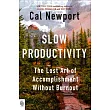A century of expanding government has distorted financial markets, stoked massive inequality, and soaked America in debt.What went wrong with capitalism? Ruchir Sharma’s explanation is unlike any you will have heard before. Progressives are partly right when they mock modern capitalism as "socialism for the rich," but what really happened in recent decades is that the government expanded in just about every measurable dimension, from spending and regulation to the sheer scale of its rescues each time the economy wobbled. The result, Sharma says, is "socialized risk," expensive government guarantees, for everyone--welfare for the poor, entitlements for the middle class, and bailouts for the rich. The Reagan and Thatcher Revolution of the 1980s did little to reverse this trend; it just changed the way governments finance themselves. They now rely more on borrowing than taxing. Over the last forty years, governments and central banks have pumped so much money into the economy that the markets can no longer allocate capital efficiently. Capitalism is now so deeply addicted to debt, even the return of inflation in recent years--which ended four decades of easy money--has not weaned its leaders off their habit. Many high-profile symbols of capitalism gone wrong, including the rise of monopolies and billionaires, are effectively creatures of a borrow and bailout culture. They thrive in a system soaked in too much government support. Conservatives and liberals find themselves surprisingly united in support of bigger government, whether to fight climate change, to revive manufacturing, to out-compete China, or contain Russia. President Biden is leading the way and has put the United States on course to become the developed world’s biggest deficit spender and biggest debtor. Voters say they are disillusioned with capitalism, but a system so distorted by government interventions is a dysfunctional version of free market ideals. As a result, productivity and economic growth have slowed sharply, shrinking the pie for everyone, and stoking popular anger. Since these flaws developed as the government expanded, building an even bigger state will only double down on what’s gone wrong. The answer Sharma offers is a series of seven fixes to restore the balance between state support and economic freedom and lay the path to a happier future.



 天天爆殺
天天爆殺  今日66折
今日66折 
























 博客來
博客來 博客來
博客來 博客來
博客來 博客來
博客來 博客來
博客來